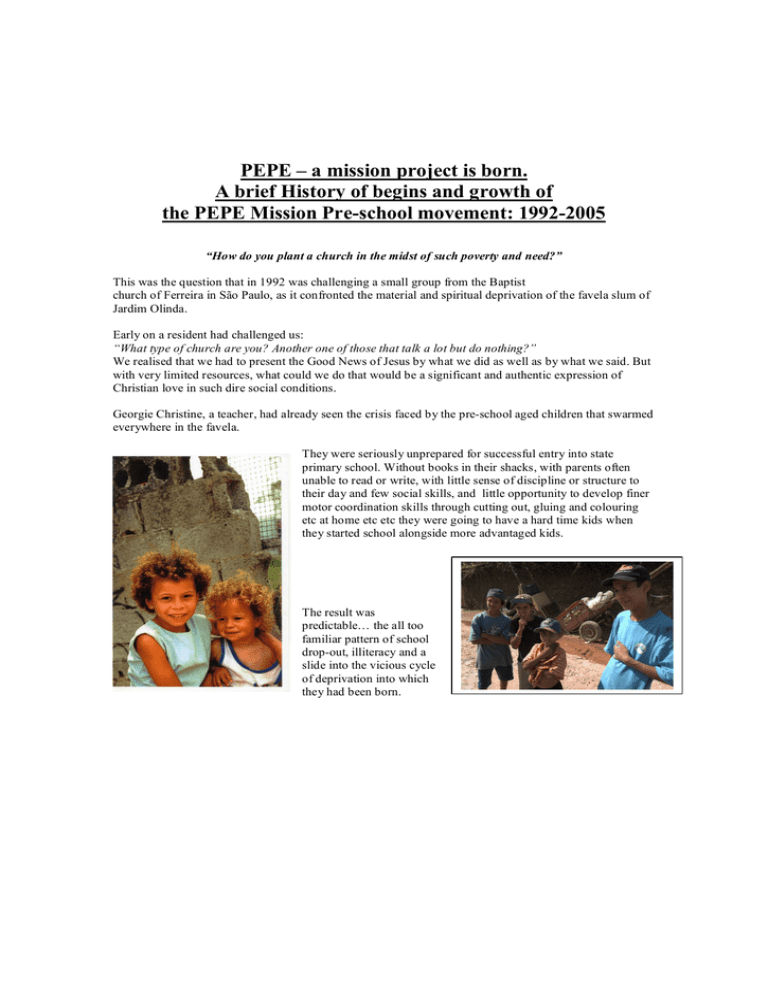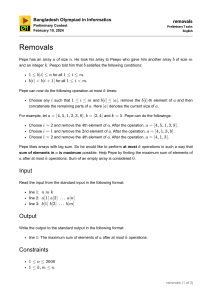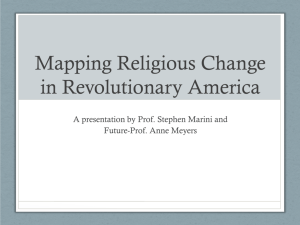PEPE – a mission project is born. A brief History of
advertisement

PEPE – a mission project is born. A brief History of begins and growth of the PEPE Mission Pre­school movement: 1992­2005 “How do you plant a church in the midst of such poverty and need?” This was the question that in 1992 was challenging a small group from the Baptist church of Ferreira in São Paulo, as it confronted the material and spiritual deprivation of the favela slum of Jardim Olinda. Early on a resident had challenged us: “What type of church are you? Another one of those that talk a lot but do nothing?” We realised that we had to present the Good News of Jesus by what we did as well as by what we said. But with very limited resources, what could we do that would be a significant and authentic expression of Christian love in such dire social conditions. Georgie Christine, a teacher, had already seen the crisis faced by the pre­school aged children that swarmed everywhere in the favela. They were seriously unprepared for successful entry into state primary school. Without books in their shacks, with parents often unable to read or write, with little sense of discipline or structure to their day and few social skills, and little opportunity to develop finer motor coordination skills through cutting out, gluing and colouring etc at home etc etc they were going to have a hard time kids when they started school alongside more advantaged kids. The result was predictable… the all too familiar pattern of school drop­out, illiteracy and a slide into the vicious cycle of deprivation into which they had been born. So in August of ’92 the first 12 five and six year olds were gathered into the broken down space cheerfully called a classroom and the PEPE_ Program of preschool Education, was born. Where the first PEPE was born! The first PEPE class attendance list on 15th August 1992­ 12 names. And what an impact it had in the community! The doors and the hearts of the community opened wide. At the first graduation in December of that year one young mother expressed the feelings of many when she said­ “Before you came Jardim Olinda had no hope. Now we have hope!” What began as a small project aimed at creating contact and credibility in one local favela so as to bring the opportunity for communicating the Gospel, quickly became a model that other churches wanted to adopt. ABIAH, an already exisiting charitable association of the Ferreira church was developed to offer support and training. By ’94 the Convention of Baptists churches in São Paulo were promoting the project and with new partners like Operation Agri and the Oasis Trust giving added support along with enthusiastic prayer and school materials parcels from dozens of UK Baptist churches, by ’98 over a 1000 children daily were in PEPEs in 25 favelas across the city. The following year we were challenged to think about whether the program might be a viable mission tool in the grinding rural poverty of the Northeast of Brazil. Iolanda Miranda, with five years of PEPE experience in the largest favela of São Paulo had been brought up in the very poor NE State of Piauí and offered to pilot the program there. To everyone’s delight the little church based pre­schools flourished in this arid and culturally different ground. We began to appreciate the cross­cultural potential of the programme, so that when in 2001 the suggestion was made that we go international and present the program to the Mozambique Baptist Convention it seemed like a natural step.By 2003 the Government Minister for Social and Womens’ Affairs opened the Mozambican Annual Baptist Assembly congratulating the churches on their commitment to the future of Mozambique­the children! With enthusiastic support from the Brazilian Baptist World Mission Board the project jumped further international boundaries and in the same year was finding success in Paraguay and Peru. From the city slums to the arid rural interiors, from tropical African forests to Andean mountain villages the PEPEs are proving an extraordinarily versatile and effective program for local church mission. With Angola, Guinea Conakry, Zimbabwe, Chile, Bolivia and in 2005, Ecuador embracing the program the current level of some 5000 plus pre­school aged children is set to continue its annual increase of some 25% per year!



